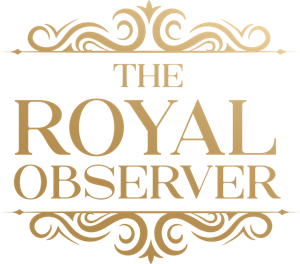Prince Charles Launches New Education Program 'Food For The Future' Which Aims To Help Cut The 'Colossal Amount Of Food We Waste'

Prince Charles wants to help others learn that we should not waste food, so he launched a new program called Food for the Future. The goal "is to give [people] a comprehensive understanding of how our food system works and discover alternative approaches that are better for nature, people and the planet," the royal wrote in an op-ed for The Mirror.
"Pupils from secondary schools across south-west and central Scotland will learn over the court of the year from notable experts like Jimmy Doherty and his longtime friend, Jamie Oliver," the 72-year-old wrote. "They will get hands-on experience of growing fruit and vegetables and farming, visit food-processing factories and learn how to cook healthy food that is locally sourced."
"I am so keen to make this happen because it is young people’s futures I am most concerned about," he shared about his mission. "If we can encourage and enable them to see that the food they eat is part of a joined-up system which can either help or hinder the health of the planet, they will be much more able to help turn the situation around to avoid the climate catastrophe towards which we are all hurtling. For one thing, they will discover that almost overnight they could help reduce global greenhouse gas emissions by up to 10 percent without it costing anything. All they need do is make informed choices to help cut the colossal amount of food we waste."
Charles cited "an enormous research project in Canada which involved a thousand families earmarking just one day a week as a 'use-up day,'" and as a result, "the families reduced the amount of food they threw away each week by a staggering – but hugely encouraging – one third."
Going forward, Charles hopes to do that in the U.K. "Farmers wouldn’t be under the same pressure to produce quite as much food from our struggling soils, the savings in greenhouse gas emissions would be substantial but, best of all, there is the likelihood of big reductions in people’s weekly shopping bills," he said. "Much is going on in the food sector to make a difference and I can only applaud the many British food manufacturers that are working to reduce the impact their processes have. But much more could be done if we, the consumers, are better informed and lead the way. My long-term hope is that food products on supermarket shelves will carry a kite mark that indicates how sustainably they have been produced."
He concluded, "At present, as many scientists have been trying to get across, we are breaching what they call 'planetary boundaries,' to the extent that we need four planet Earths to sustain the current and projected demands we make on this one, precious planet. For this reason, I have spent some 40 years of my life trying to indicate what needs to be done to ensure we do not bequeath a destroyed world to our children and our grandchildren. As you can imagine, therefore, I would be delighted to see them playing an active part in ensuring that their future is a healthy and prosperous one, and to do so fully informed about how profoundly their health depends upon the health of the planet that sustains them."
